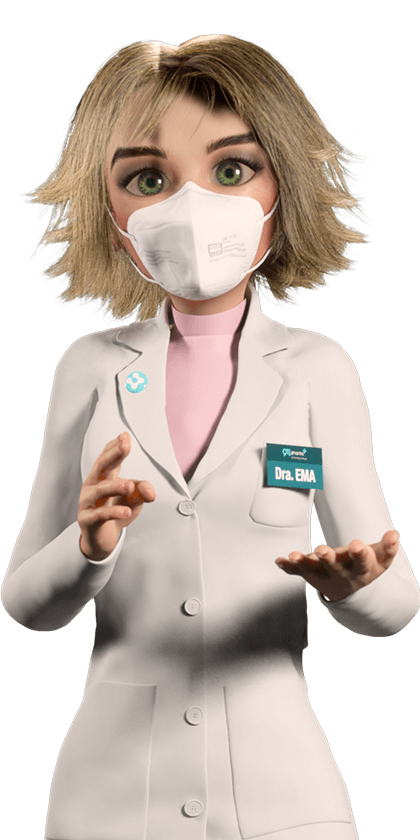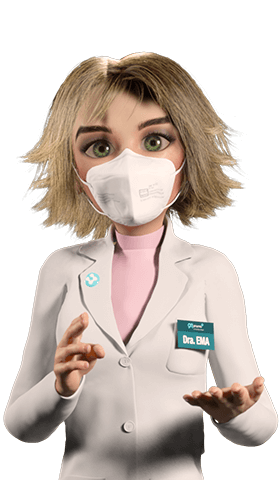Virus
Chickenpox - It Feels So Good to Scratch, but It's forbidden
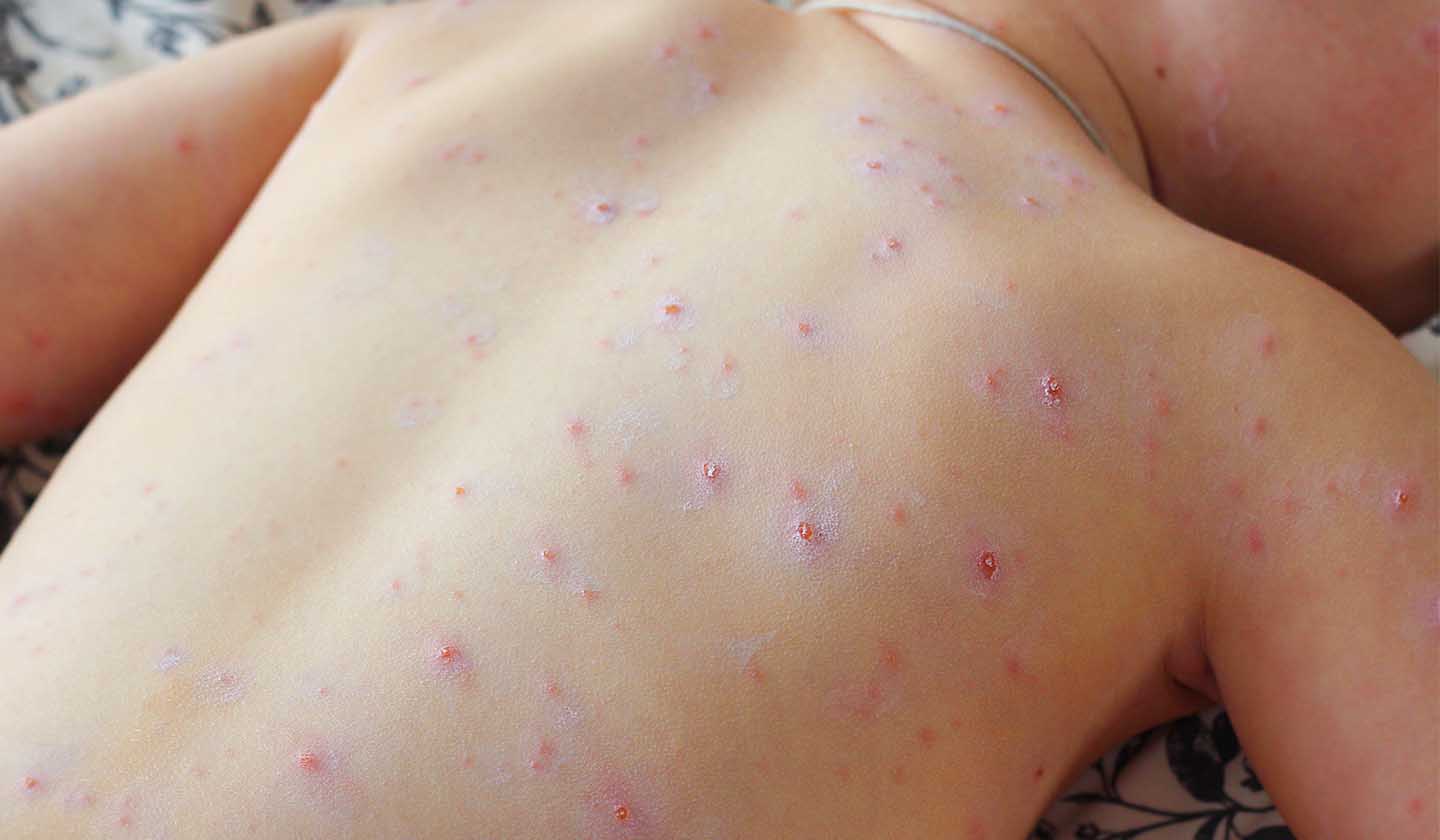
Chickenpox is one of the most common communicable diseases in childhood and is quite contagious. It is a benign disease caused by the varicella-zoster virus, of the Herpes-virus family. It is more prevalent in winter and spring.
It is characterized by rash or blisters that cause intense itching, which can affect the entire skin.
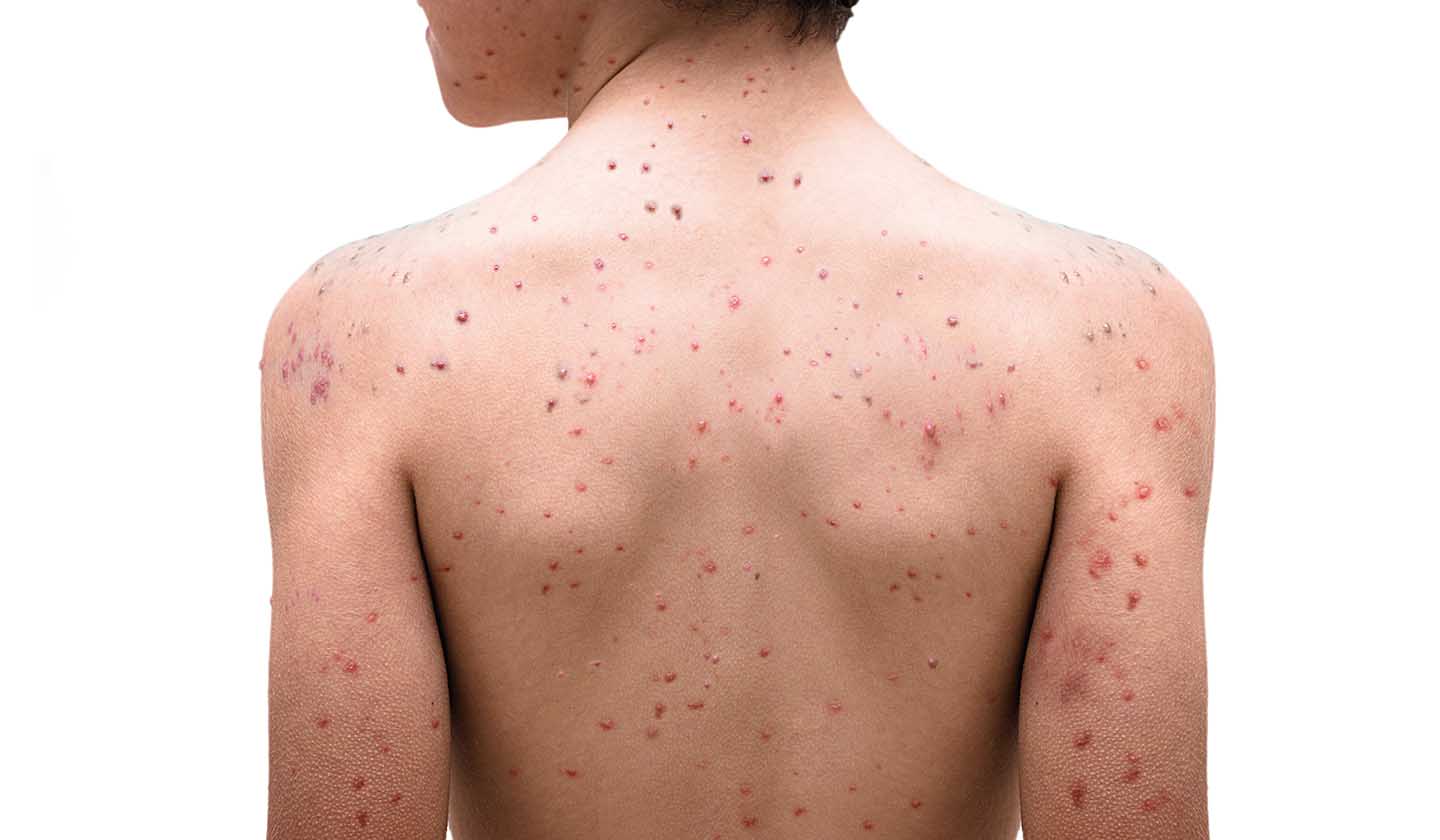
Symptoms:
-
Mild fever (sometimes severe in adults)
-
Headache
-
General malaise (stomach pain is possible)
-
Loss of appetite
-
Skin rash
Skin rashes start as scattered small red bumps mostly on the scalp, face, and torso areas. They may also appear in the mouth, throat, ears, and genitals.
2 to 4 days later the rash will change into fluid-filled blisters (vesicles), which scab over (after 7 to 10 days). Blisters at different stages of the disease can be observed at the same time: while some dry out, others break out.
The blisters cause intense itching, but the desire to scratch must be thwarted, as it can cause skin wounds and lead to a bacterial infection.
Transmission
Chickenpox spreads from person to person by:
-
direct transmission with skin vesicles or contaminated objects;
-
transmission through tiny droplets of saliva of the infected person (even before the patient show any symptom) when sneezing, coughing, or speaking.
The transmission period of chickenpox is 1 to 2 days before the lesions appear, no more than 6 days later.
The incubation period can last for 21 days and the disease lasts for 5 to 10 days from the moment the first lesions appear until the vesicles crust over.
Therefore, the risk of transmission remains until all the blisters are healed. The best way to avoid transmission is to isolate and treat the child suffering from the disease, that is, to stay safe at home.
If a woman is pregnant and has already had chickenpox, she is completely immune and there is no risk to the foetus. Otherwise, especially in the first 20 weeks of pregnancy, chickenpox can lead to serious complications. As in any adult, the manifestations of chickenpox in pregnant women are more intense.
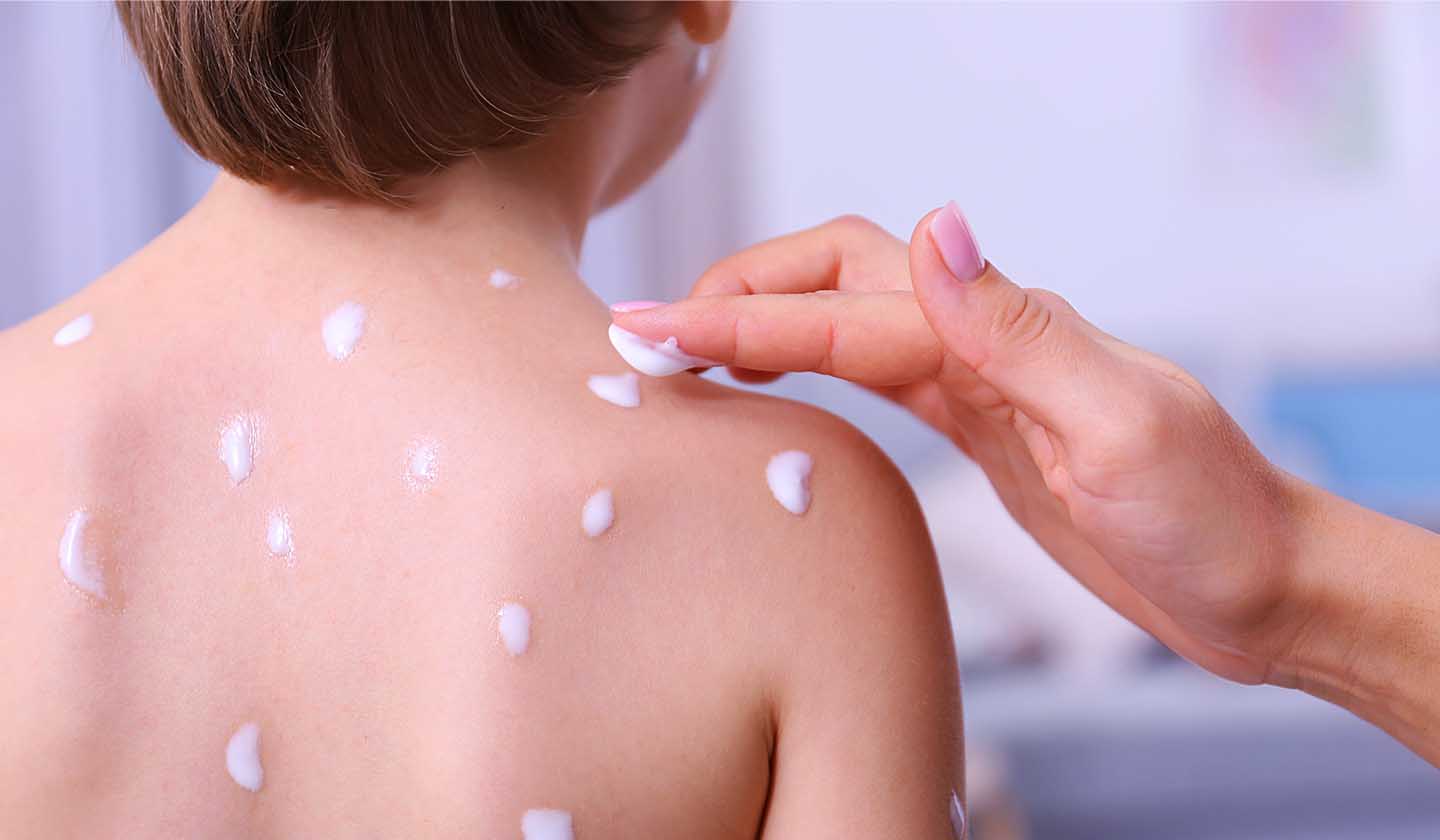
Cares to be taken
-
A tepid daily bath to calm down the itching using antiseptic gel, or products containing oats or starch (these ingredients soothe the itch);
-
Rest
-
Apply products (cream, gels, or lotions) containing calamine to relieve the rash and itching blisters (avoid contact with eyes); whoever applies the products (carer) should always wash or disinfect their hands with 70% alcohol.
-
Trimmed nails and clean hands to minimise the risk of infection if your child scratches
-
If the disease appears in the mouth, choose soft or liquid foods (soups, yoghurt, porridge) and cold foods as well; avoid acidic foods
-
If there is fever or pain only paracetamol should be administered. Never use anti-inflammatory or acetylsalicylic acid as they can cause serious illness in children
-
To relieve itching, the doctor may prescribe an antihistamine
-
The doctor may prescribe acyclovir, an antiviral for more severe cases
Prevention
In some countries (for example in Portugal), the vaccine is not included in National Vaccination Plan (PVN), although it is authorized by Infarmed and available for medical prescription.
The vaccine is recommended for children between 12 months and 12 years of age (1 shot) or from 13 years of age, if they have not had chickenpox (2 shots, with an interval of 4 to 8 weeks).
The vaccine is contraindicated for persons with a depressed immune system, pregnant women, cancer patients, patients taking high doses of corticosteroids and people who are allergic to gelatine and/or neomycin antibiotics.
If chickenpox is transmitted to a person who has been vaccinated, symptoms are milder and the recovery is faster.
Sources
iSaúde
Farmácia Distribuição Magazine
Também lhe poderá interessar
Virus
Don't let this infection take your smile away
Signs and symptoms
